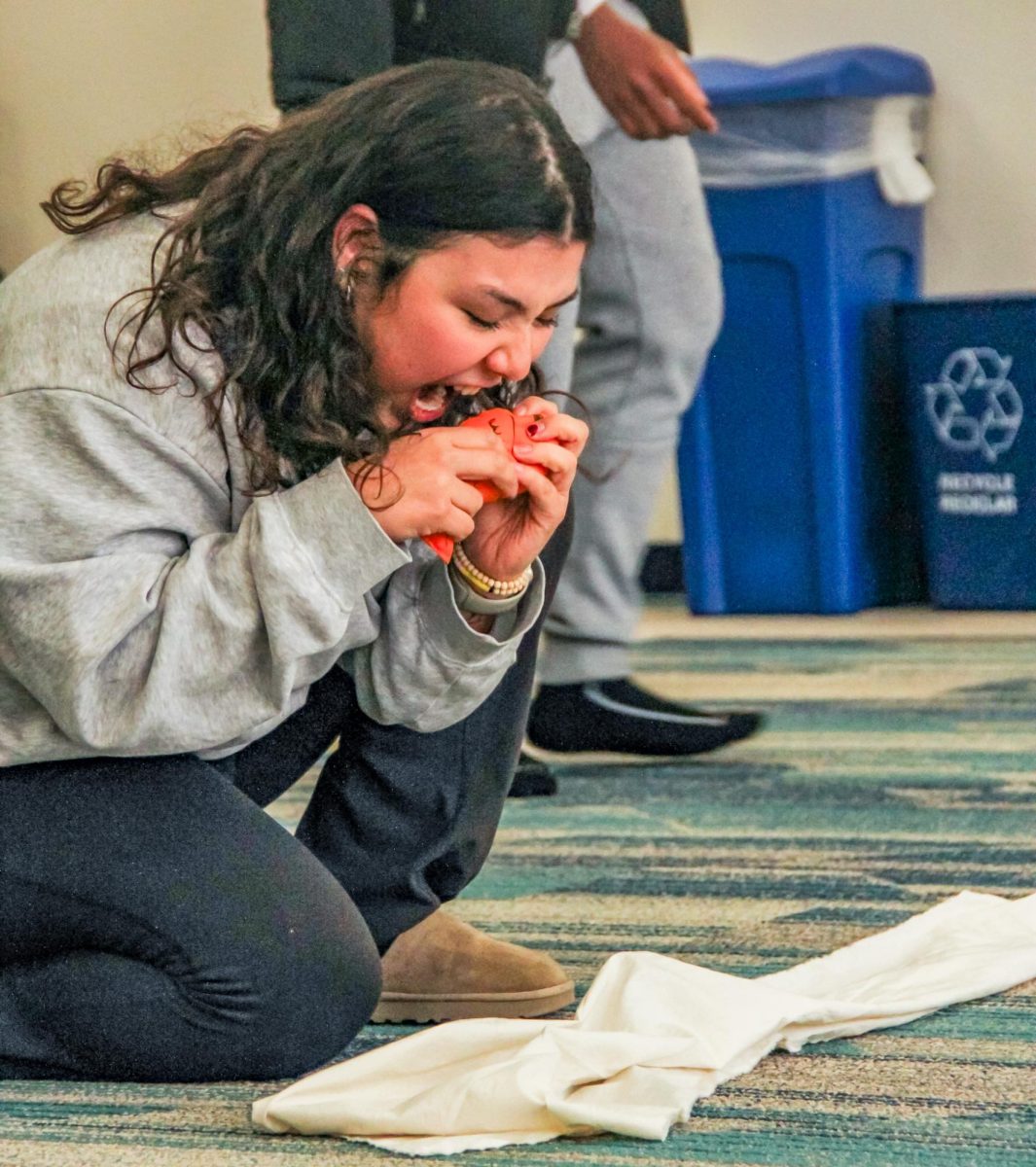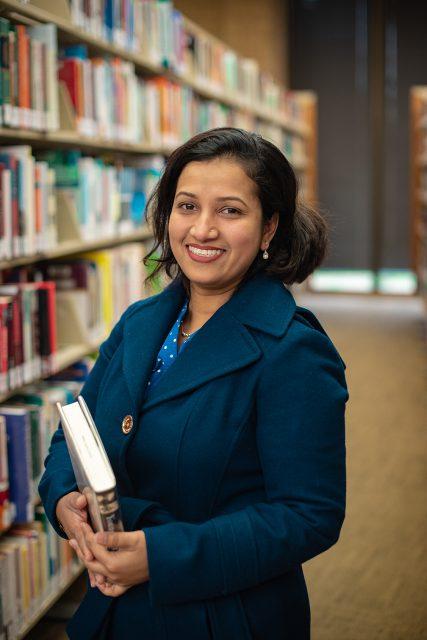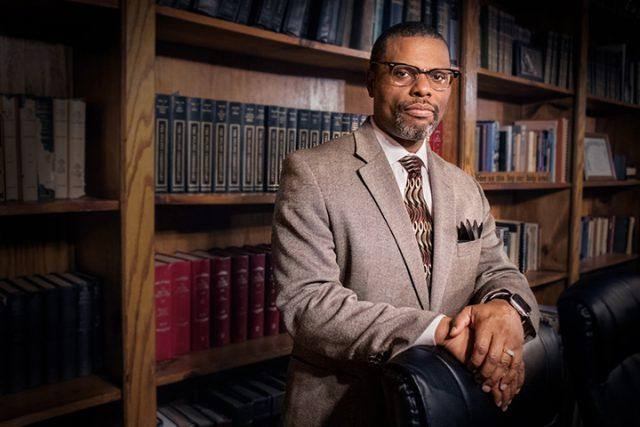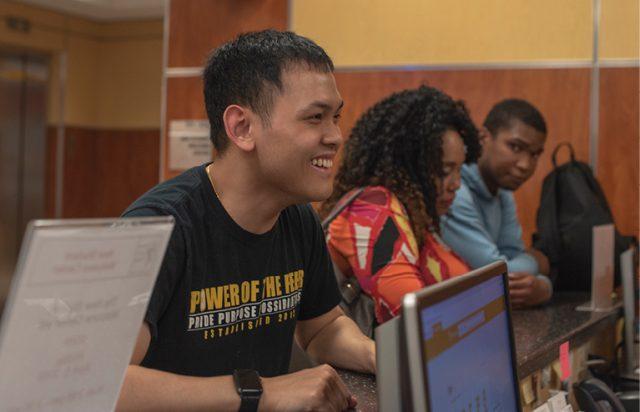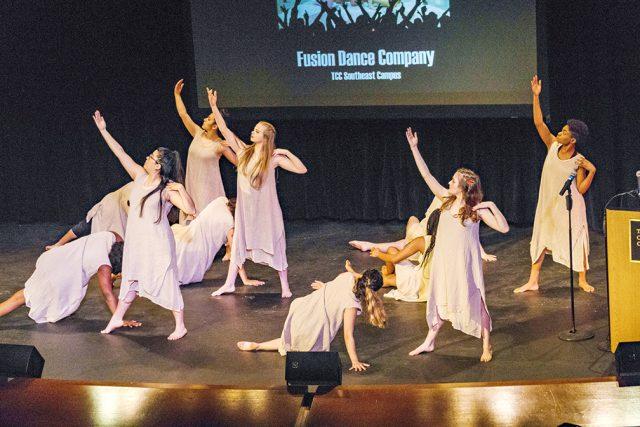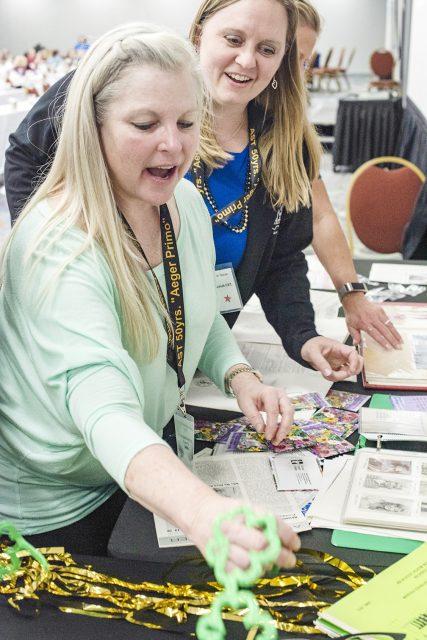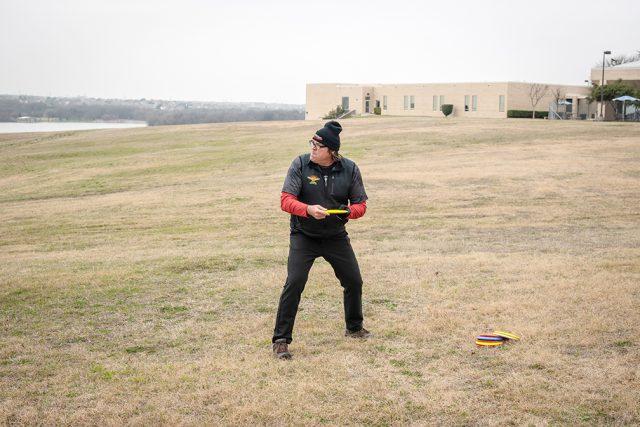By Jordan Reber/reporter
NE student Farzana Pramanik won the lottery in her native country of Bangladesh 15 years ago.
She came to the U.S. at a mere 18 years old, all alone with no family or friends and barely knew English. She left everything behind but for good reasons: Better opportunities like education, a career, gender equality, health care and her freedom.
She applied for something called a D.V. lottery in 2004. More than 7,000 people sought the winning ticket. But Pramanik was one of the lucky ones — she won her freedom.
The lottery in Bangladesh is actually referred to as a visa because it offers opportunities in the U.S. Pramanik may not have had at home.
While Americans look at the lottery as mega-millions, Pramanik just wanted a better life.
“Where I lived, it’s a really small country, and it’s not developed,” she said.
Pramanik knew this and decided to come to the U.S. for a better life, regardless of having to leave behind her loved ones and the country she grew up in.
She still feels guilty for leaving.
After she left, her father became ill, and last year, he died of heart complications. Pramanik fears he died of a broken heart, even though he never would have dreamed of holding her back.
America was also not what Pramanik expected.
“I had a hard time because my native language is different, so I had a lot of hard times understanding people who live here,” she said.
But this sure wouldn’t stop her from achieving what she set out for, a better education.
Pramanik currently attends NE Campus but has plans of transferring to University of Texas at Arlington, although she’s not sure what she wants to study. For now, she is getting her Associate of Arts.
Pramanik seemed to be most concerned about the state of her family. Several times she said that if her family was with her when she came, it would have been much better.
But it also made her stronger having to do it on her own. She misses her family and still thinks about them a lot.
“I have the best opportunity to study here,” she said. “I have a better life than in Bangladesh.”
In Bangladesh, they have a lot of crime, and girls are not independent like in the U.S., she said.
“I can go anywhere I want, anytime I want, but in Bangladesh, I couldn’t do that,” she said. “I have a lot of freedom here.”
Some people take the freedoms in America for granted.
In five to 10 years, Pramanik sees herself graduating and finding a good job, perhaps her dream job.
She wants to make sure her children get a good education and have the life she fought for that wasn’t possible when in Bangladesh.
“I think it was really hard for her being alone in this country,” said Rizia Rahman, Pramanik’s sister-in-law. “Especially as a woman in our country, we depend on a man, but here she did everything by herself.”
Prior to coming to the U.S., Pramanik had never had a job, but that has all changed.
Pramanik said her parents are not very rich and were unable to send her money when she came to the U.S. This caused her to have to pay rent for food and everything else at just 18 years old for the first time, which was really hard for her to do alone, she said.
Pramanik’s nephew Rafsan Jani said his aunt is making the most of her opportunity in America.
“She can enjoy all her rights,” Jani said. “She is getting maximum opportunity to earn and getting the proper facilities for education.”
But for Pramanik, she hopes her story will inspire others to find the same strength she did to live a better life than the one had in Bangladesh.









